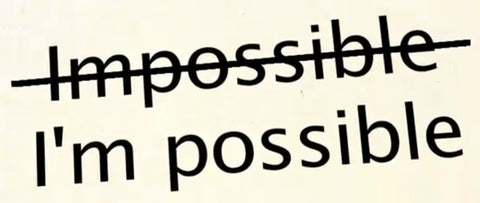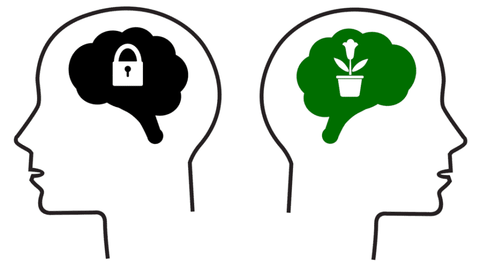Will Hypnotherapy Work for Me? 8 Simple Checkpoints

Many of us think of hypnotherapy as some kind of slightly strange, almost magical alternative treatment that sort of tricks the mind – we go into a sleep-like trance and wake up changed.
In reality, Clinical Hypnotherapy works. When used properly, it can provide one of the most powerful forms of natural healing and transformation imaginable – but it requires your active participation.
There are a number of essential requirements that need to be met in order for Clinical Hypnotherapy to be effective.
These prerequisites can help you to achieve long-term change and brilliant, often wondrous results through hypnosis and its complementary treatment processes.
- You cannot be in an altered state of mind already.
You cannot enter an altered state when you’re already in a chemically induced altered state.
Clinical Hypnotherapy is most effective when it is used in combination with other conscious and unconscious processes.
An experienced practitioner will guide you through various levels of trance. Trance, although a natural state, is also an induced altered state when used to aid unconscious reprogramming.
Whether due to psychotropic drugs, alcohol or other recreational drugs, if you’re already in a drug-induced altered state you cannot be taken into a natural altered state.
Therefore, Clinical Hypnotherapy is unlikely to be effective if you are affected by mind-altering substances or drugs like antipsychotic medications. Addicts, recreational drug users or those who use alcohol need to be completely sober and hangover free before treatment.

- You need to be 100% committed to the process of change.
This is not a passive process. You will need to participate fully in order to generate your own internal change.
A good practitioner can show you the quickest and easiest way to achieve your goals using the power of your unconscious mind. However, the change is created by you; it is not done to you.
One misconception is that Clinical Hypnotherapy is that you lie down, are “hypnotized” and wake up a changed person.
For long-term change to occur, this process needs to be combined with a number of other complimentary processes depending on your individual needs. Alone, being hypnotized will feel great but it is unlikely to generate lasting transformation.
Contrary to some popular opinion, there is no voodoo, no magic wand in this work. However, the effects can seem quite magical; they can be exceptionally fast and permanent – but only if you apply the processes in your mind.

- You won’t change unless you want to.
The bottom line here is there is no tricking of your mind. There is no manipulation. You get the changes you desire. It won’t work if you’re doing it before you’re ready, or if you’re doing it in order to please someone else.
If you seek treatment to give up smoking in order to please your partner, you’re wasting your time and money. It won’t work because you can’t trick your mind into wanting something you really don’t want. Wait until you want to give up smoking yourself.
If you send your husband along to get motivated, he will – but maybe not about what you would like him to be motivated about. He could become super inspired to improve his golf skills rather than clean the house or tidy the garden.
Your teenager may improve his soccer skills rather than his grades or tidiness. And if you send your child along for treatment they may tell you they want to do it in order to please you - but they will not achieve results unless they honestly want change themselves.
It is important to note the difference in knowing, for example, that you should lose weight – as opposed to genuinely wanting to.
Also, sometimes you need to allow natural processes to work before you are ready to dissolve the underlying issue. For example, grief is a process that needs to be given time and patience. Until the emotions associated with the grieving process are experienced, you will not be ready to let grief go.
Your unconscious mind wants you to thrive, but it knows what’s healthy for you – and just as the physical healing process would be hindered by removing a scab too soon, so too are emotional processes sometimes required to be experienced before you are ready to heal fully emotionally.
The good news here is Clinical Hypnotherapy cannot change you into someone you don’t want to be.
In fact, it will enable you to be more of who you really are – your self-expressed authentic real self. It will guide you, using the incredible power of your unconscious mind, to heal in the healthiest way possible.
It will not allow you to do anything that is likely to hinder you in any way. You will only resolve issues that you want to resolve consciously and that you are ready to resolve.

- You’ll need an open mind.
The processes utilised to generate change through Clinical Hypnotherapy are very different to the current mainstream clinical models. They require a new way of thinking about the linkages between mind and body in diseases, healing and both mental and physical wellbeing; in other words, a rediscovery of age old knowledge and wisdom.
Clinical Hypnotherapy and complimentary natural unconscious processes have been used effectively since the Roman and Egyptian eras.
In contrast, some of the “mainstream” treatments currently normalized in Western medicine have only been around for decades. They can be wonderful for bringing concerns into focus. However, they are often ineffective, and can cause a dependence on drugs and ongoing treatment when it comes to deeply rooted unconscious issues such as anxiety, unwanted habits, blocks or limiting beliefs.
For this reason, you will need to look past the current 'medical establishment' models in order to literally “re-mind” yourself with a highly qualified hypnotherapist.
These powerful internal processes bring your conscious and unconscious mind together in order to rewire and recalibrate your body/mind and create a new way of being in life.
Most fears, phobias and feelings of inadequacy are embedded deep in the unconscious mind; and therefore that is the only place in which they can be resolved. In fact, consciously you often have no idea what created them – or even what they are. For this reason hypnotherapy for anxiety is incredibly powerful and effective.
So it doesn’t matter how much or with whom you discuss them, you will never resolve them until you do so at the unconscious level in which they were created and exist.
Remember, your unconscious mind is the powerhouse that allows you to heal and thrive without conscious awareness.
The unconscious mind, like a sophisticated supercomputer, enables your body to operate on a daily basis; to breathe, walk and talk without thinking of those actions. It also protects you against physical or emotional threats. It knows exactly how to resolve all deeply embedded issues – often instantly – when you know how to allow it to.

- You’ll need a highly qualified practitioner.
This work requires a practitioner who understands the complexities of the mind. It’s unlikely to be effective if the therapist has only completed a short course or series of short courses.
In a largely unregulated field some of the best ways to check if you’re in the right hands is to ensure the practitioner:
- Is a “Government Accredited Clinical Hypnotherapist”.
- Belongs to Professional Industry Associations – preferably, both the Australian Hypnotherapy Association (AHA) and the Australian Society of Clinical Hypnotherapy (ASCH).
- Uses the most recent and effective combination of both conscious and unconscious complimentary therapies – such as Clinical Hypnotherapy, NLP and other forms of complementary Psychotherapy – to generate the most effective long-term change.
- Is properly qualified – preferably tertiary degree qualified. Qualifications need to generate knowledge and understanding of the complexities of the mind.
- Has substantial experience.
- Ensures you have an understanding of the processes involved, how they work and what is expected of you.
- Has current working with children checks, police checks and public liability insurance.

- If you’re not experiencing results in 3 sessions, it’s time to move on.
If you haven’t experienced noticeable positive change within three clinical sessions you’re either in the wrong hands or you’re not ready for this work at a conscious or unconscious level.
In these circumstances, an ethical professional will be upfront with you and encourage you to either come back at a later date, do some counselling or psychology before continuing, or seek another alternative more suited to your needs.
No professional will continue treatment if you’re having no positive result.

- Some issues require patience, perseverance and more time.
When you are living through challenging circumstances changes will be slower over an ongoing period of time – often extending until you are able to change your circumstances.
Under this scenario, as a consequence of your treatment you will still notice distinct positive changes in the way you respond and react to situations and people.
However, this is a different form of treatment to someone who is essentially where they want to be in life and simply looking to change habits, override barriers to success or overcome stress, anxiety or a limiting mindset.
If you’re undergoing this treatment while living through severe challenges, you will need to be patient and focus on your achievements as you continue to move forward.

- A professional practitioner will tell you the truth.
A professional practitioner will have the integrity to put you first, and that will mean guiding you to do what you need to do in order to achieve your goals.
What you need to hear may not always be what you want to hear. Sometimes, it will mean letting you know you are not ready to work with these processes yet. Sometimes it will mean being straight about what you’re doing that’s working, and what you’re doing that’s not working.

Summary Tips
- You can create the life you want – starting with changing your inner state.
- You are the only one that can change you. In the right hands you will never be manipulated.
- Choose a professional practitioner, with appropriate accreditation, qualifications and experience.
- Hypnotherapy doesn’t change your true nature; it enhances it.
- You need to be in a natural state, unaffected by chemicals or mind-altering drugs.
- You’ll only experience the changes you want, and are ready for.
- You will notice distinct positive change within 3 sessions if the treatment is right for you. You may need additional sessions, to generate further positive change.
“All personal breakthrough begins with a change in beliefs.” Anthony Robbins
Leave a comment
Comments will be approved before showing up.





Lyn Macpherson
Author